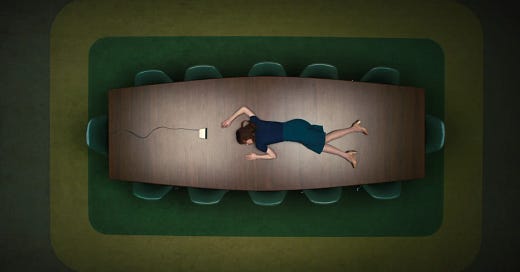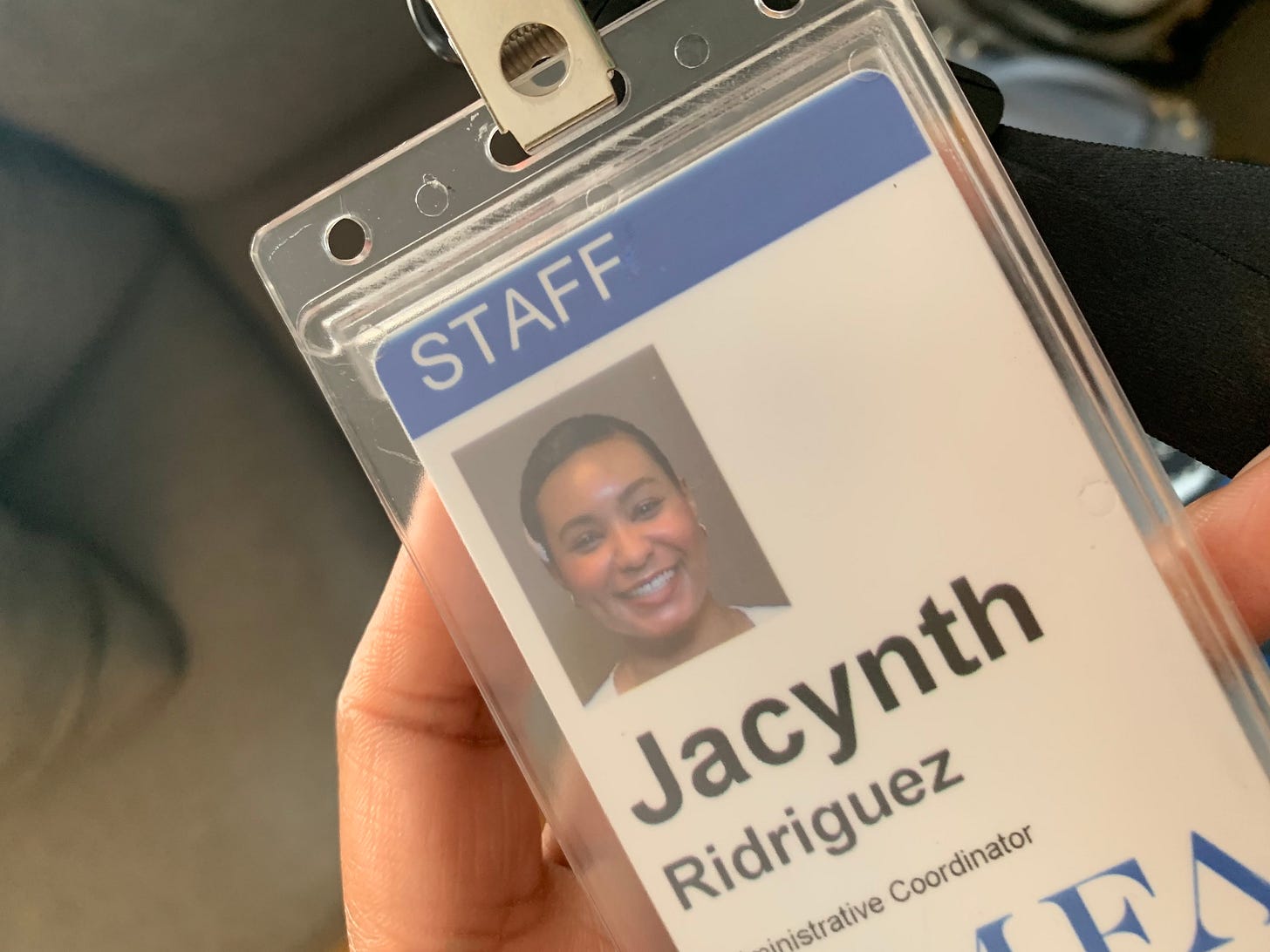Chances are, if you’re hot, you’ve been watching Severance on Apple TV (I don’t make the rules, I just write about them). For those of you unfamiliar with the series, it’s set in a world where individuals can opt to undergo a procedure that divides their consciousness in two: a work self and a non work self, or as they’re affectionately called on the show, an innie and an outtie.
Think Eternal Sunshine of the Spotless Mind for a post corporate-core world. It’s instantly fascinating, ridiculously eerie and generally just great tv.
I’ll be honest though, over the course of its two seasons there have been times where the thought of tuning in to a mind fuck of a show about corporate purgatory after enduring 8 hours of my own was the very last thing I wanted to do. In fact, there were times when I’d sit and watch the Lumon MDR team do their mysterious and important work completely oblivious to the world outside of their sterile office and wonder if getting severed could actually be that bad.
Back when I was young and dumb — that is, earlier in my career, I foolishly fell for the trap that is “showing up” as my whole self at work. TLDR: I was doingtoomuch.com. But hey, this was early pandemic and apex DEI times. Things were different and we were all a bit cringe, especially at work.
I’ve been hired for and worked in office settings that praised me for my voice, my integrity, my willingness and bravery to speak up and out against what is wrong, only to down the line penalize me for that exact quality. As a two time survivor of the Pet to Threat phenomenon, this is an especially nightmarish form of physiological and emotional whiplash.
 Tiktok failed to load.
Tiktok failed to load.Enable 3rd party cookies or use another browser
As a Black woman, it’s impossible to watch the show and see characters like Mr. Milchick and Natalie jump through proverbial hoops, over perform their duties, shine as pinnacles of Black Lumon Excellence, and endure micro-aggressions while bearing a particularly soul diminishing tortured smile and not get war (office) flashbacks. There’s that emotional exhaustion I mentioned.
So I’ll be the first to admit it:
After years of idealism and naivety, I no longer have a desire to change the temperature of every room I walk into. I just don’t believe it’s worth my energy anymore.
“After all, the office isn’t the only place you exist — why should they get to have all of you?”
These days, sharing my whole self at work has become less important to me. It’s like the older I get, the more important it is for me to do just do the job well and head out. Gone are the days of being brash in my ideals and appearance daring people not to accept me. You could see this as years of professional disappointment eroding my spark and making me jaded, or — you could see it as me protecting that spark.
The greatest writer of all time, Toni Morrison said it (as always) best:
“1. Whatever the work is, do it well—not for the boss but for yourself.
2. You make the job; it doesn’t make you.
3. Your real life is with us, your family.
4. You are not the work you do; you are the person you are.”
-Toni Morrison, The New Yorker, 2017
Years ago, I had this portion of her essay printed on out and tapped to my office wall. I was working a miserable assisting job and trying but failing to separate my work self from my real self.
These days, I've actually managed to pin down the ever elusive work-life balance.
I log on, do work that challenges me for a few hours, then close my computer and go be a real person. I hate to brag, but the balance is so good that I don't even think about work until I log back in the next day. It's an incredibly new experience for me—so new that it alarmed me at first not to be plagued with Sunday and weeknight scaries. But then I realized, oh, this is how life should be. Or at least, as close to how it should be as I’ve ever come.
And so, perhaps the answer isn’t as drastic as electing to get a surgical implant to completely bifurcate my mind. Maybe the answer is — and always was, to simply let my job be a job and to focus instead on living my real life.









